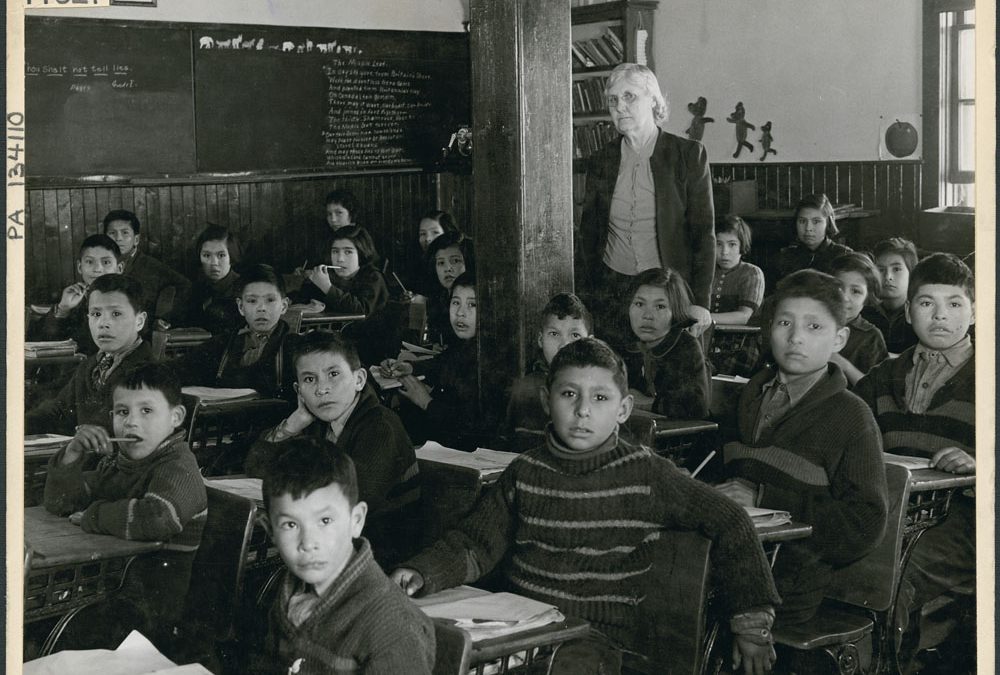WARNING: DISTURBING CONTENT
“This is not our information, this is not Canada’s to hold and be the ultimate arbiter of yet we are doing that and have done and that’s not fair. It’s not right and what it does is it continues to open up a number of wounds that people thought were closed and it isn’t fair,” said Crown-Indigenous Relations Minister Marc Miller upon signing a new agreement which will see the transfer of residential school documents from federal custody.
Ottawa and the National Centre for Truth and Reconciliation signed a memorandum of agreement which will see 850,000 documents of residential school sites and historical and witness accounts given over.
In December, Miller directed his department to conduct an internal review of existing documents, wanting full disclosure where possible.
In May 2021, Tk’emlúps te secwépemc First Nation Chief Rosanne Casimir announced the discovery of 215 unmarked graves at the former Kamloops residential school. A month later Chief Cadmus Delrome of the Cowessess First Nation stated that ground-penetrating radar unearthed as many as 751 unmarked graves at the former Marieval residential school.
“The identification of unmarked graves at former residential school sites across the country was tangible and painful evidence of the abuse that indigenous children have suffered at residential schools. Canada has a moral obligation to survivors to pursue the truth and to ensure access to documents, school narratives and records so important to healing, to closure of education and preservation,” Miller said. “We’re doing everything in our power to uncover the full truth about what happened. We know that our words are not enough and that concrete actions are needed.”
Miller indicated some of the records are unreadable or encrypted and will need to be transcribed for public access. He has instructed his department to retain all records pertaining to survivors.
“This is an important step on the journey of reconciliation. It is a step that is frankly long overdue,” explained Stephanie Scott, Executive Director for the National Centre for Truth and Reconciliation. “I want to assure survivors and that the NCTR promises to be good caretakers of these records, and to ensure appropriate security measures are in place to protect the integrity, authenticity, and sensitivity of these records.”
Miller said that the transmission of documents is expected to begin forthwith.
A National Indian Residential School Crisis Line is available to provide support to former residential school students who can access emotional and crisis referral services by calling the 24-Hour National Crisis Line at 1-866-925-4419.
